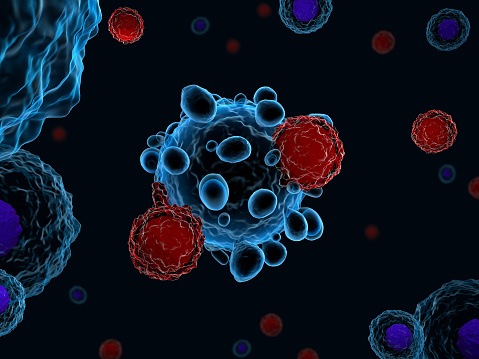
A B-cell maturation antigen (BCMA) chimeric antigen receptor (CAR) T-cell therapy resulted in a 100% response rate among patients with heavily pretreated relapsed/refractory multiple myeloma (MM), according to a study presented at the 2019 ASH Annual Meeting.
The novel CAR T-cell therapy CT103 was assessed in a single-center, single-arm trial that has treated 16 patients with MM who have received three or more prior lines of therapy, including a proteasome inhibitor and an immunomodulatory drug.
Between September 21, 2018, and August 1, 2019, patients received a conditioning chemotherapy regimen of cyclophosphamide and fludarabine, followed by CT103A in 3+3 dose-escalation trial (four doses at 1×106/kg, 3×106/kg, 6×106/kg, and 8×106/kg).
Median follow-up after CT103A infusion was 195 days (range, 23-314 days), and all patients were evaluable for initial (14 days) clinical response.
Safety and efficacy
The objective response rate was 100%, and six patients achieved complete response (CR)/stringent CR (sCR) within two weeks post-infusion. Four patients previously underwent CAR T-cell therapy, and three achieved sCR, while the other achieved a very-good partial response.
All evaluable patients (n=15) were minimal residual disease-negative at some point within 100 days post-infusion. Circulating CT103A cells were detected in the blood by flow and digital polymerase chain reaction, peaking at 14 days (range, 9-25 days) and remaining detectable in 12 patients at the time of last evaluation.
All patients experienced cytokine release syndrome (CRS), including one case of grade 4 CRS that occurred at the 6×106/kg dose level and was considered a dose-limiting toxicity; however, none experienced neurological toxicity.
One patient died of a lung infection 19 days post-infusion.







 © 2025 Mashup Media, LLC, a Formedics Property. All Rights Reserved.
© 2025 Mashup Media, LLC, a Formedics Property. All Rights Reserved.